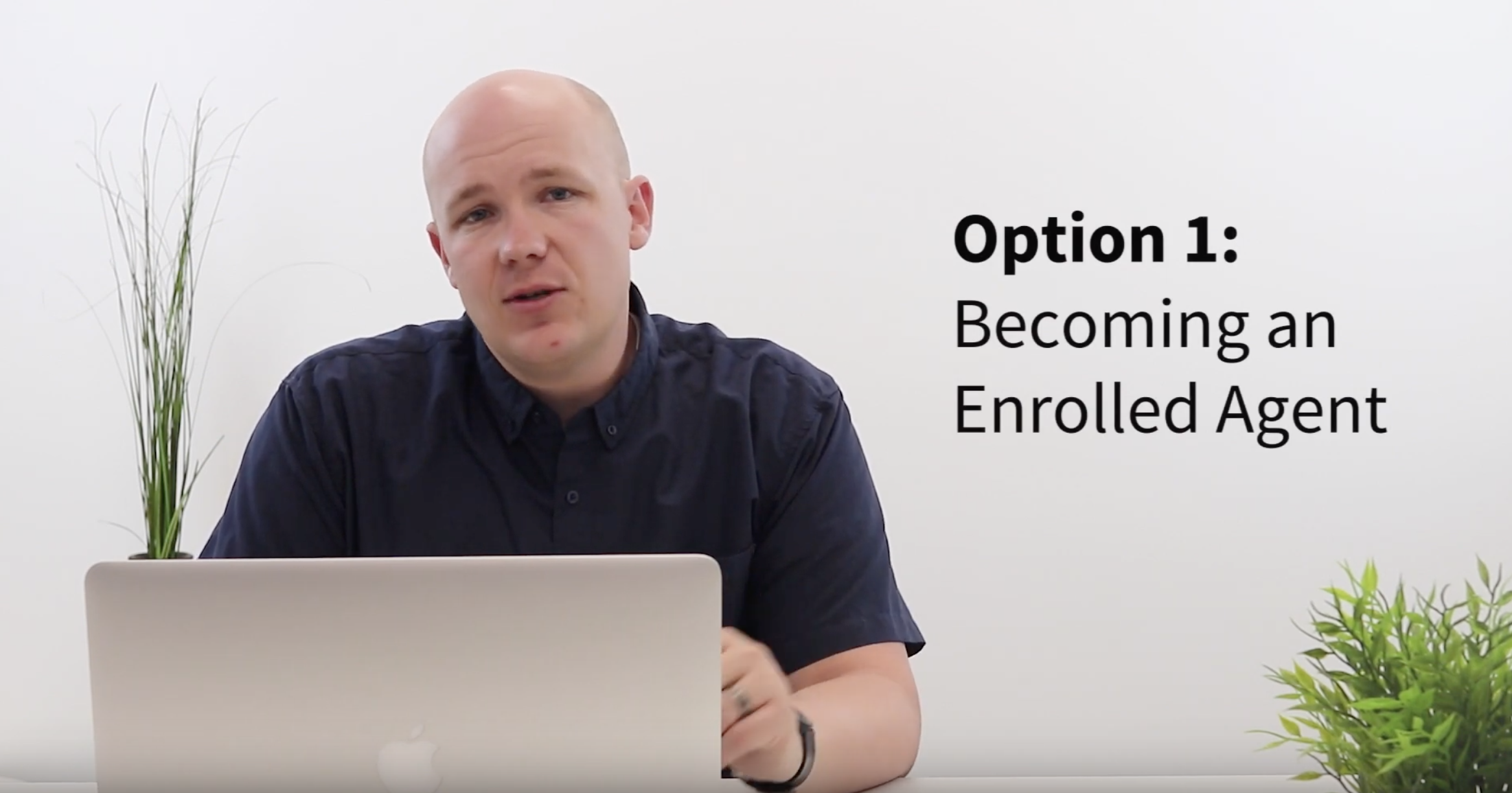Enrolled agents, or EAs, specialize in all kinds of tax issues, both individual and for businesses large and small. As an EA, they earn the right and privilege to represent clients before the IRS, covering all tax topics and working with any administrative level. It is a highly respected accounting certification that has the power to boost careers and expand opportunities within the profession.
How to become an enrolled agent
Tax accountants who want to become an EA need to pass a comprehensive three-part exam that tests their knowledge of tax law and processes. This exam, known as the SEE, covers individuals, businesses tax procedures, representation and tax practice. Participants must pass each of the parts within two years to earn their license. There’s no educational requirement or hourly threshold that qualifies a person to become an EA, just the exam itself.
Once the tax accountant has passed the exam, they must go through a background check administered by the IRS. Every three years after that, the EA must keep up on continuing education credits throughout their career. The honor and distinction of becoming an enrolled agent can make a big impact on a tax accountant’s professional life, and it’s worth looking at the many benefits.
Benefits of becoming an enrolled agent
Whether someone is just starting out in their career or they have plenty of tax preparation experience and want to take things to the next level, they should consider becoming an enrolled agent. Here are three of the most valuable benefits in becoming an enrolled agent.
1. Verification of Tax Expertise
Earning an EA license means that the tax accountant is part of an elite group that is recognized as a tax expert. As the highest certification given by the IRS, an EA is an easy way to signal that the professional who holds the license has a very high level of tax expertise.
The IRS has such strict standards about earning an EA credential that everyone understands it means deep knowledge and a range of expertise. An EA is not limited to state or regional knowledge, either. Because it is regulated by The Department of Treasury, EA credentials are recognized and revered in every state.
2. Opportunities for Job Growth
Becoming an enrolled agent is an excellent way to explore job opportunities and business prospects that may not otherwise be open. EAs specialize in tax issues of all kinds ranging from businesses to individuals. An EA license makes tax accountants highly desirable when it comes to jobs at a tax firm, a government entity, or for a CPA in the private sector. With an EA on their resume, it’s easy for someone to stand out among other job applicants.
3. Expanded Earning Potential
For tax accountants, earning an EA can increase their salary by several thousand dollars and allows them to take the next step in their career. The higher salary potential is one of the many benefits that an EA license can provide. In the eyes of their clients, EAs are incredibly valuable because they need help understanding the complexities of taxes and how they affect their business or their individual earnings.
EAs can represent taxpayers in any kind of situation in front of the IRS on an unlimited number of tax topics. From collections and audits to appeals and advising, EAs can work in any state and there are no limits to the type of clients or the type of IRS offices they can take on. No matter where they are in their career, EAs will always be able to provide a wide range of tax services to an increasing number of clients from all backgrounds.
Find more information about becoming an enrolled agent in this blog post.








Get Our Latest Updates and News by Subscribing.
Join our email list for offers, and industry leading articles and content.